When it comes to animals with impressive jaws, some species have evolved extraordinary adaptations that allow them to open their mouths wide, whether to catch prey, defend themselves, or intimidate rivals. From deep-sea creatures to land-based giants, the diversity of these jaw structures is astonishing. In this article, we’ll explore the top animals that can open their mouths the widest, ranked by the extent of their mouth gape, starting with the most jaw-dropping examples.
The Nile crocodile is one of the largest reptiles in the world and claims the title of having one of the widest mouth gapes. This fearsome predator can open its mouth up to 65 degrees wide, revealing rows of razor-sharp teeth. The massive jaws help the crocodile capture large prey such as zebras and antelopes, and their powerful bite makes them one of the most dangerous animals in Africa. The sheer size of a crocodile’s open mouth is a testament to its predatory efficiency.
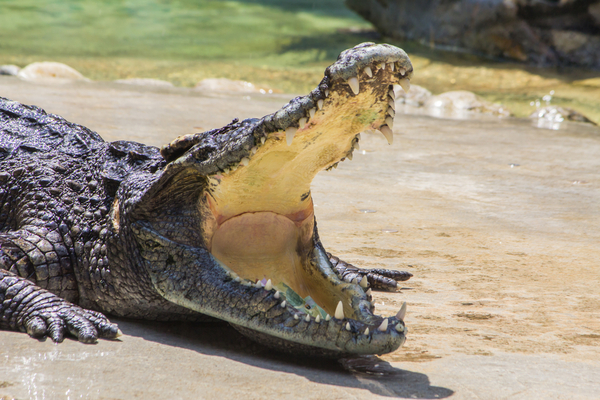
The hippopotamus may not be a carnivore, but its mouth gape is among the widest in the animal kingdom, capable of opening to an astounding 150 degrees. A hippo's mouth can reach up to four feet wide, revealing massive teeth that are used for combat rather than feeding. Despite their herbivorous diet, hippos are considered one of the most dangerous animals in Africa due to their aggressive nature and powerful bite, capable of crushing almost anything in their path.
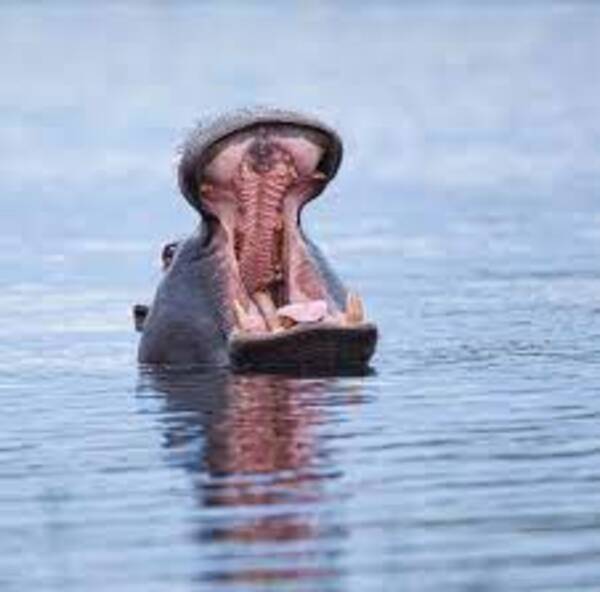
One of the most extraordinary mouth gapes belongs to the gulper eel, also known as the swallowing eel or pelican eel. This deep-sea species has a remarkably distensible jaw that allows it to open its mouth disproportionately wide relative to its body. The gulper eel’s mouth can expand to swallow prey much larger than itself, making it a master of survival in the dark depths of the ocean. Its mouth works like a vacuum, enabling it to engulf prey such as small fish and shrimp in one massive gulp.
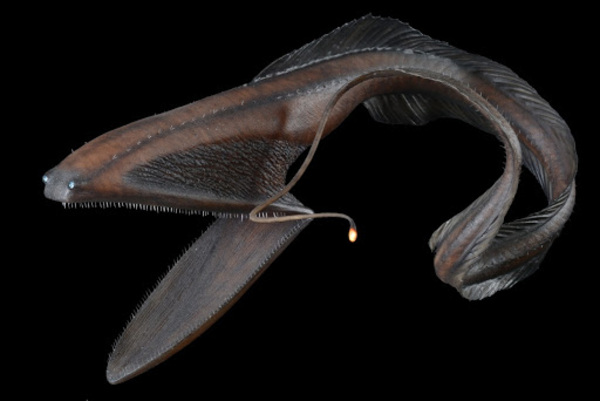
Snakes, particularly those like pythons and anacondas, have evolved flexible jaws that can open extraordinarily wide, up to 180 degrees in some species. Unlike most animals, snakes have a jaw structure that isn’t rigidly attached to their skull, allowing them to consume prey much larger than their heads. This unique adaptation allows them to swallow whole animals such as deer and antelopes, making them some of the most effective predators.
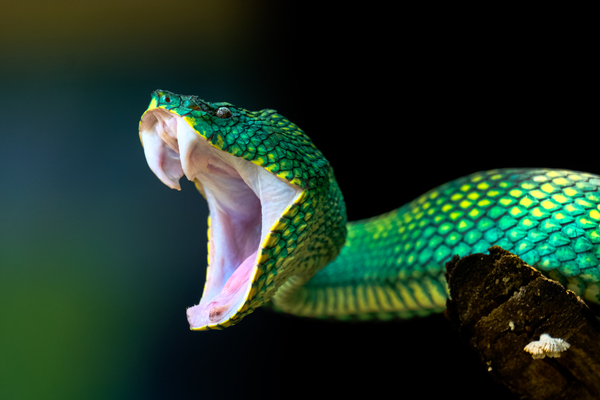
The great white shark is one of the ocean's most fearsome predators, and its ability to open its mouth to 120 degrees allows it to capture large prey such as seals and sea lions. Equipped with rows of serrated teeth, a great white’s mouth is both wide and powerful, with a bite force capable of crushing bones. While it may not have the widest mouth, the combination of its gape and bite strength makes it a formidable hunter in the ocean.
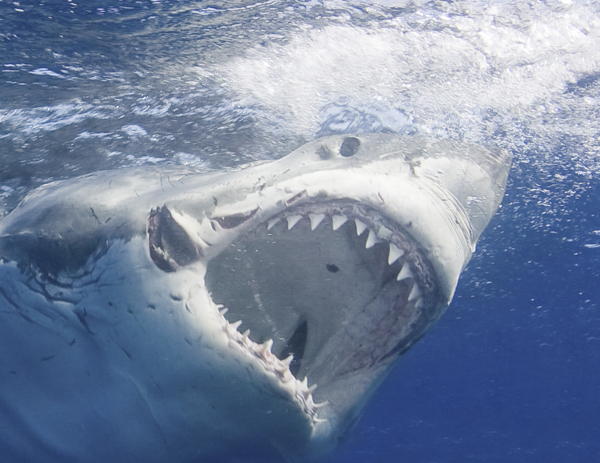
Orcas, also known as killer whales, are apex predators with a surprisingly wide mouth. An adult orca can open its jaws up to 80 degrees, revealing a set of sharp, conical teeth designed to capture fish, seals, and even other large whales. Orcas are intelligent and social hunters, using their wide gapes in combination with group tactics to corner and catch prey efficiently.
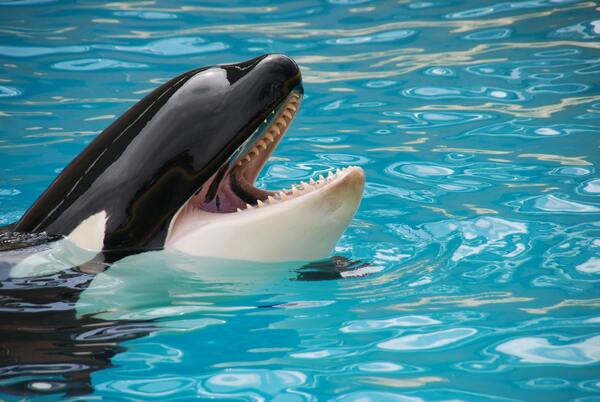
Similar to other large snakes, the Burmese python has an impressive gape. Capable of opening its jaws up to 160 degrees, this snake can consume prey much larger than itself. Its jaw is made up of several bones connected by ligaments, allowing the snake to stretch its mouth wide enough to swallow animals like deer, pigs, and even alligators whole.
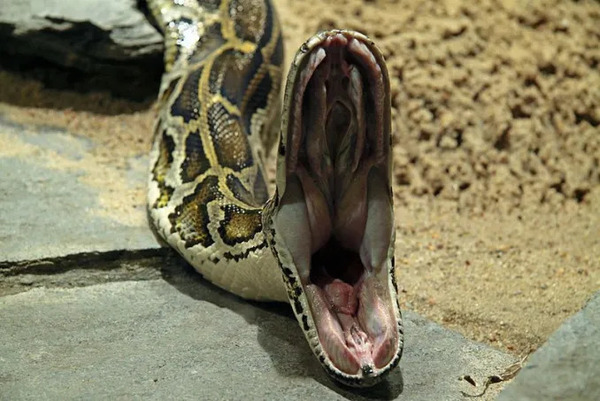
The Goliath frog, the largest frog species in the world, has a wide mouth relative to its body size. Though it doesn't compare to the massive mouths of some predators on this list, its mouth can open wide enough to capture insects, small reptiles, and birds. Its impressive gape helps it snatch up prey quickly in its environment, making it a successful hunter in the wild.
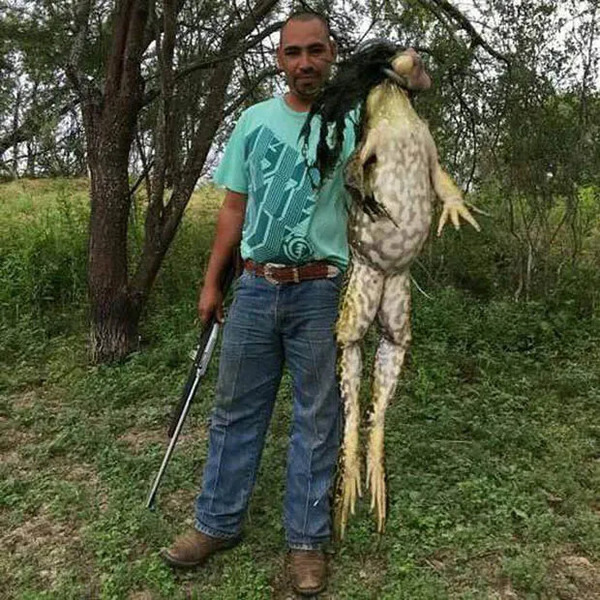
Pelicans are known for their enormous, expandable throat pouches, but their wide mouths are equally impressive. Pelicans can open their mouths nearly 90 degrees, using them to scoop up large quantities of water and fish. Their long beaks, combined with their wide gape, make them efficient at catching and holding multiple fish in a single dive.
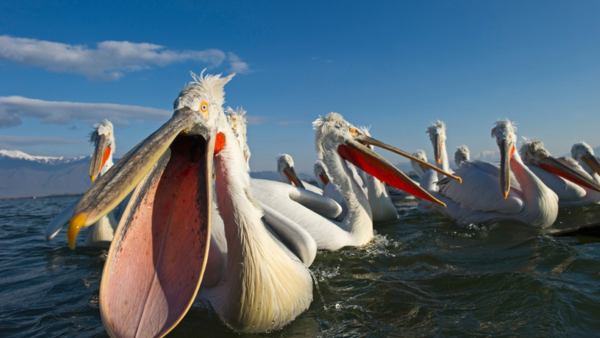
Jaguars, known for their powerful bite, can also open their mouths wide enough to deliver deadly attacks. While their gape isn’t as wide as some other animals on this list, it is still impressive in terms of strength. Jaguars use their powerful jaws to pierce the skulls of their prey, which includes caimans, monkeys, and other animals in their tropical habitats.
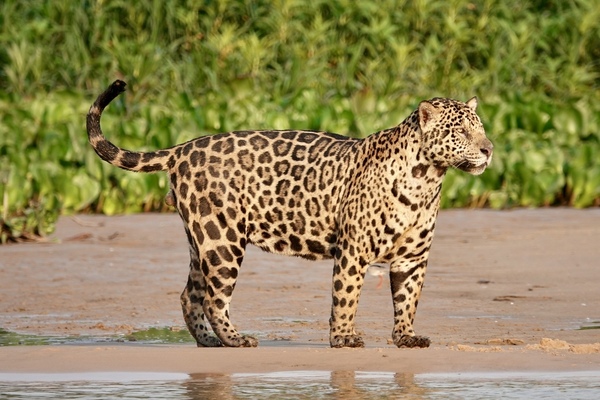
The alligator gar, a freshwater fish, has an impressive mouth that can open almost 70 degrees. This species uses its wide mouth and sharp teeth to capture fish, birds, and small mammals. The combination of its wide gape and needle-like teeth makes it an effective predator in its environment.
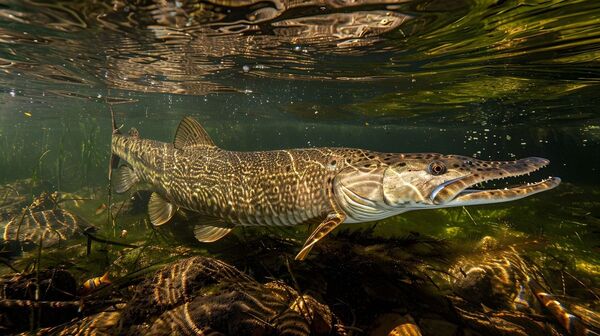
Camels may not seem like contenders for the list, but they have surprisingly wide mouths. Their long, flexible lips allow them to eat thorny desert plants that other animals avoid. A camel’s wide gape is designed for grazing, and their large teeth and jaws help them process tough vegetation.
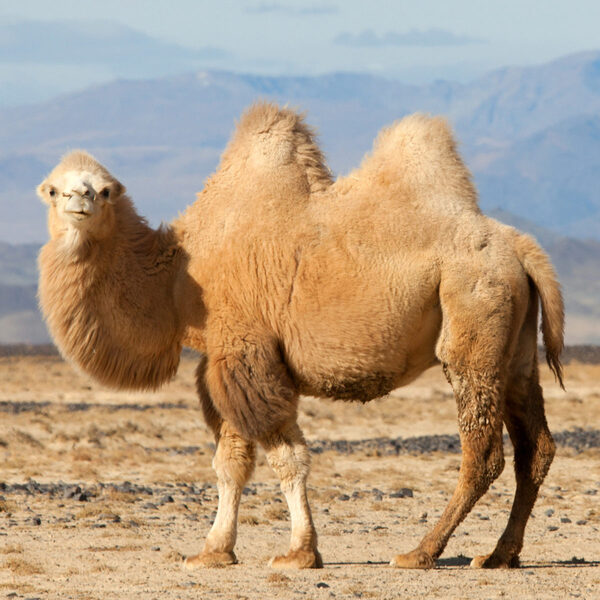
Lionfish: These spiny fish can open their mouths wide to create a powerful suction that draws in prey.
Pac-Man Frog: Known for its appetite, the Pac-Man frog has a mouth that can open almost as wide as its body, allowing it to swallow prey whole.
Parrotfish: With beak-like jaws, parrotfish can open their mouths wide enough to scrape algae and chunks of coral.
The animal kingdom is full of fascinating creatures with incredibly wide mouths, from the massive gape of the Nile crocodile to the expandable jaws of the gulper eel. Each species has evolved its mouth structure to suit its needs, whether for hunting, defense, or survival in extreme environments. While some animals rely on the sheer strength of their bite, others have adapted to open their mouths wide enough to engulf prey far larger than themselves.
Understanding these creatures' jaw structures highlights the incredible diversity of life on Earth and the evolutionary adaptations that allow animals to thrive in their unique habitats. Whether on land or in the deep sea, these animals demonstrate that having a "big mouth" can be one of nature’s most powerful survival tools.
animal tags: wide-mouths
We created this article in conjunction with AI technology, then made sure it was fact-checked and edited by a Animals Top editor.